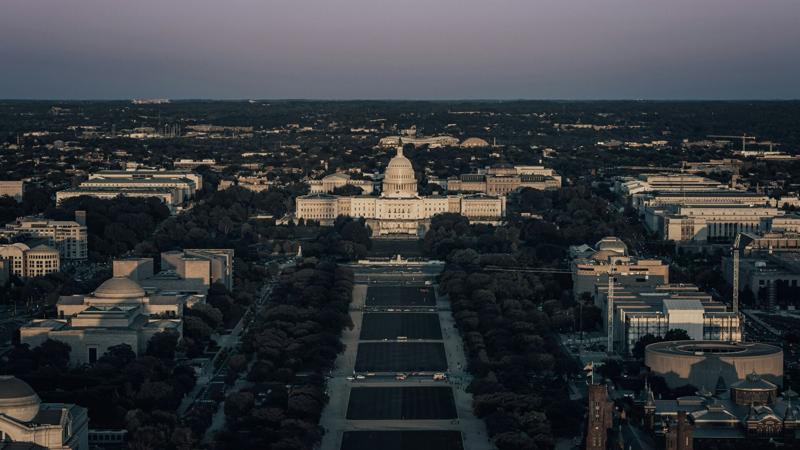A majority of Americans support the mandate that sent federal workers back to the office, according to a new poll.
Within hours of being sworn in as the 47th president, President Donald Trump issued a short but blunt order directing federal workers to return to the office.
The Center Square Voter’s Voice Poll found 43% of people support the return-to-office mandate for all government workers, while 27% support a mandate to send “essential” government employees back to the office. Combined, 70% of voters support requiring at least some federal workers to return to the office. Only 16% are opposed to the mandate, followed closely by 14% who are unsure.
Despite the support for the mandate, the survey showed some divides among respondents’ answers, most notably by generation and political affiliation.
Fifty-four percent of Republicans support the mandate, while only 35% of Democrats favor it.
There is another notable divide among the respondents based on generation.
Only 33% of Generation Z (ages 18-29) favor the return for all federal employees, with millennials (ages 30-44) giving a 40% approval – followed by Generation X (ages 45-64) with 47% and Baby Boomers (ages 65+) also 47%.
David Byler, head of research at Noble Predictive Insights, suggested some possible explanations for the results, citing political influences.
“Republicans are more supportive of a return to office mandate because, generally, they’re more skeptical that the federal government is working. Democrats are more likely to be sympathetic to federal workers – to think they’re effective people who deserve the benefit of being able to work from home,” Byler said.
Regarding the generation divide, Byler contends that older generations may be more conservative, therefore in line with Republicans on the issue. He added that they were more accustomed to working in an office for several years before the pandemic. In contrast, younger generations’ views towards employers could shape their opinions on the matter.
“I think there’s something generational here, too. Younger voters have a more adversarial relationship with employers – a relationship where they may want more benefits and doubt the good intentions of their bosses,” Byler noted.
Despite the political and generational divide, Democratic and Republican leaders in the District of Columbia and Virginia sounded the alarm on the need for federal workers to return to the office long before Trump’s return to the White House.
In December 2023, Gov. Glenn Youngkin wrote to the Biden administration asking to end remote work to boost public transit ridership, which took a major hit since the pandemic.
As previously reported by The Center Square, the Washington Metropolitan Area Transit Authority has been bogged with a $750 million budget shortfall.
“Prior to the pandemic, federal workers contributed over $100 million in annual fare revenue and 40% of the ridership to WMATA,” Youngkin wrote in a letter to Kiran Ahuja, director of the Office of Personnel Management.
“We need to get people back in offices, especially the federal government,” Youngkin wrote in a social media post.
Democratic D.C. Mayor Muriel Bowser also urged Biden to end remote work.
“We need decisive action by the White House to get most federal workers back to the office,” Bowser said during her 2023 inaugural address.
Noble Predictive Insights conducted the Center Square’s Voter’s Voice poll between April 15 and 18. The poll, one of only six national tracking polls across the U.S., surveyed 2,527 registered voters, including 1,089 Republicans, 1,187 Democrats and 251 independents. In addition, the poll weighed age, gender, education and race/ethnicity.
The survey has a +/- 2.0% margin of error.







